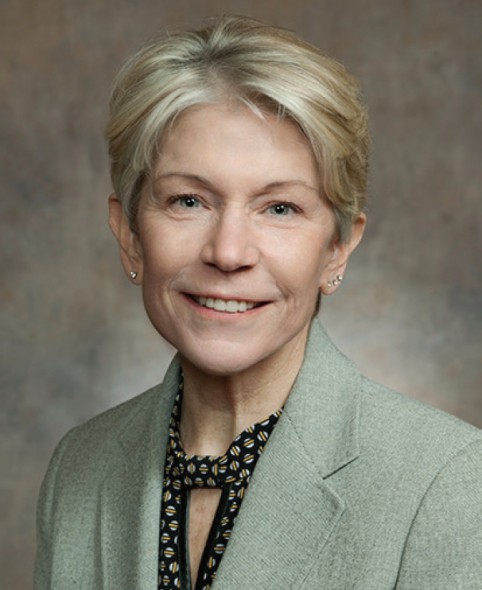6 Senate Races Will Decide Party Control
Stakes are high, including control over 2020 redistricting.
Below the too-close-to-call races for governor and U.S. Senate is another important campaign battleground: Which party will control the state Senate?
Republicans started 2017 with a dominating 20-13 margin in the Senate. But special elections Democrats won in western and northeast Wisconsin narrowed that gap to 18-15.
Republicans have controlled the Governor’s Office and both houses of the Legislature since 2010 elections.
Because it takes 17 votes to pass anything in the Senate, conservative Republicans who recently balked at new tax breaks for Kimberly-Clark blocked a vote that may mean the difference between the company closing a Fox Valley plant or keeping it open.
After the June special-election victory of Democratic Sen. Caleb Frostman in the Door County-based 1st District, Senate Democratic Leader Jennifer Shilling said her party had a real chance of controlling the Senate when it reconvenes in January.
“The last time Senate District 1 had a Democrat representing it, it was 1977,” she said then. “Gerald Ford was (U.S.) president, VHS tapes were starting to hit the shelves and the Vikings were in the Super Bowl.”
Shilling later added, “No sitting Republican should feel like they are safe.”
To keep his seat, Frostman must again defeat Republican Rep. Andre Jacque on Nov. 6, when voter turnout will be much higher than in the June special election. Every scenario of Democrats taking Senate control assumes Frostman wins again.
The stakes over which party controls the Senate couldn’t get any higher.
Because Capitol veterans expect Republicans to keep control of the 99-member Assembly, but with a smaller margin than the 64 members they had in January 2017, a Democratic Senate would be a firewall stopping policies of a re-elected Republican Gov. Scott Walker.
Or a Democratic Senate would be a critical leverage partner, if Democrat Tony Evers is elected governor on Nov. 6. Or, a Republican-controlled Senate would be a check on a Gov. Evers.
But the 1st District fight is just one of six battleground Senate elections that will determine Senate control. Capitol veteran Joe Murray, director of political and governmental affairs for the Wisconsin Realtors Association (WRA), is a veteran handicapper of legislative elections. The WRA has endorsed Walker in past elections.
Months ago, Murray predicted in WRA’s magazine that Republicans would have trouble beating Frostman in November, if he won the special June election. Murray also noted that Democrats “and their third-party allies” were targeting “conservative” incumbent Republican senators and the open 23rd District seat created by the retirement of Republican Sen. Terry Moulton.
“The 2018 midterm,” Murray pointed out, “is the first election that Gov. Walker and the Republican majority will have to run with President Trump in the White House.”
After researching local vote totals for President and governor, Murray compiles “composites” profiling how specific Senate districts have voted in the past. Nov. 6 vote patterns could vary if it’s a Democratic “wave” election, however. For example, Murray’s composite score based on past votes in the 1st Senate District, is 54 percent Republican.
Besides the 1st District, the other five Senate elections likely to determine 2019-20 Senate control are:
*19th District: Senate President Roger Roth, of Appleton, is being challenged by Democrat Lee Snodgrass, also of Appleton. Issues in the race include “dark store” tax breaks for retailers, potential Kimberly-Clark tax breaks and highway funding. Roth is seeking his second term. Murray’s composite rates the 19th District as 52 percent Republican.
*23rd District: GOP Rep. Kathy Bernier, of Chippewa Falls, is opposed by Democrat Chris Kapsner, of Boyceville. Murray’s composite score: 52 percent Republican.
*31st District: Republican Met Pittman, of Plum City, versus former Rep. Jeff Smith, of Eau Claire. The seat is open because Democratic Sen. Kathleen Vinehout ran for governor. Murray’s 31st District composite score, based on past votes for governor: 46 percent Republican.
*17th District: GOP Sen. Howard Marklein, of Spring Green, faces Democrat Kriss Marion, of Blanchardville. Marklein is seeking his second term. Murray’s composite of past district votes: 47 percent Republican.
*25th District: Democratic Sen. Janet Bewley, of Mason, faces Republican challenger James Bolen, of Cable. Bewley is seeking her second term. Murray’s composite, based on votes for governor: 45 percent Republican.
Steven Walters is a senior producer for the nonprofit public affairs channel WisconsinEye. Contact him at stevenscotwalters@gmail.com
The State of Politics
-
RNC Brings Fame to Gen Z Party Leader
 Jul 15th, 2024 by Steven Walters
Jul 15th, 2024 by Steven Walters
-
Wisconsin’s Republican Roots Run Deep
 Jul 8th, 2024 by Steven Walters
Jul 8th, 2024 by Steven Walters
-
Feuding Supreme Court Justices Need a Break
 Jul 1st, 2024 by Steven Walters
Jul 1st, 2024 by Steven Walters






















